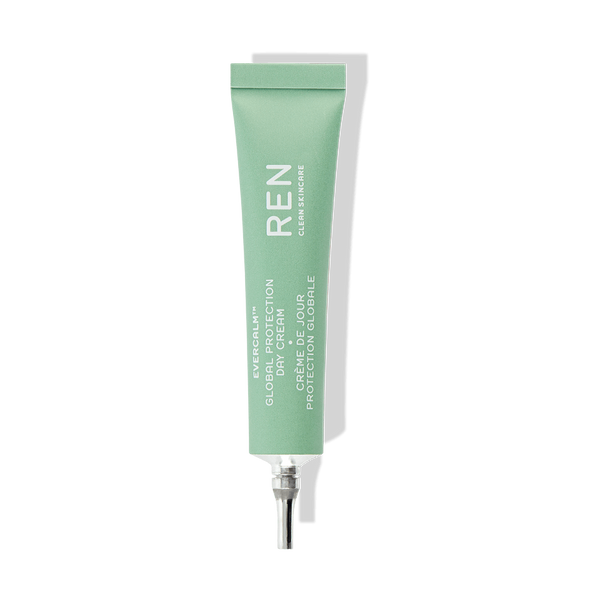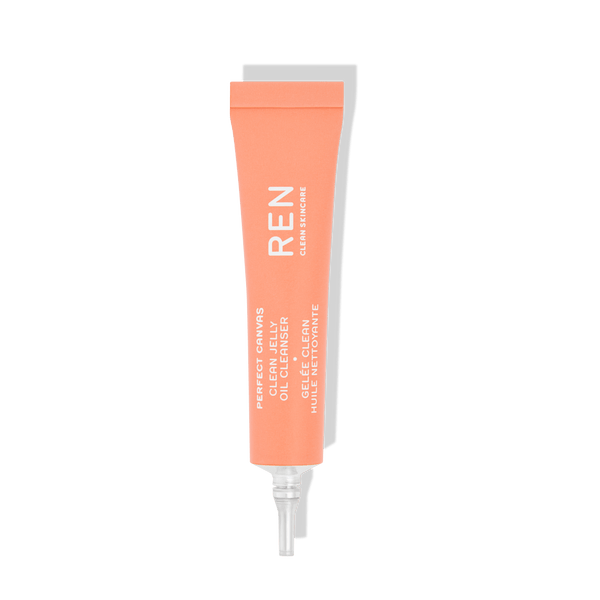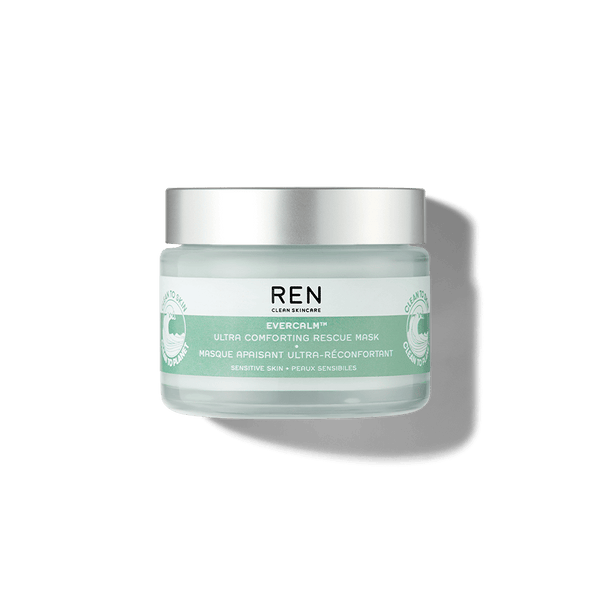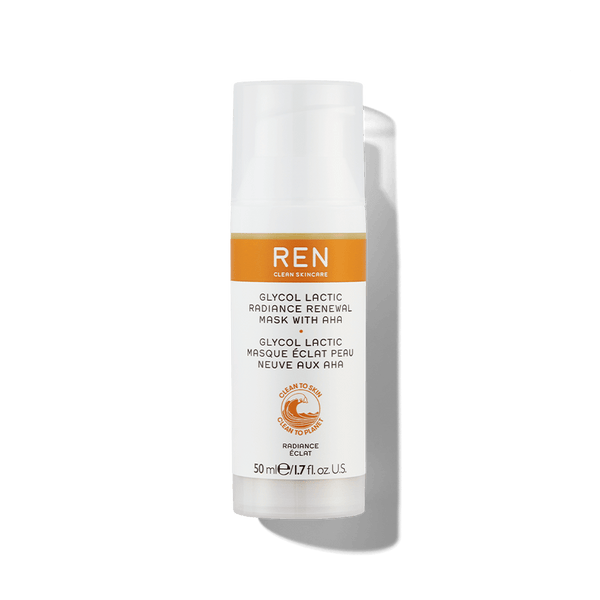How to Strengthen and Protect a Damaged Skin Barrier

If you’re frustrated by constant skin problems, it may be your skin barrier to blame.
It’s the answer to (almost) all of our skin woes; excessive dryness, breaking out from every new beauty product, or turning tomato-red post face mask.
When it’s working, the skin barrier is our greatest defence, keeping out harmful bacteria and pathogens and keeping in moisture and antioxidants, but when it’s not, it’s our greatest hindrance.
So, how do you know when you’re dealing with a damaged skin barrier and most importantly how to reinforce it?
Well, that’s why as the Sensitive Skin Experts, we’re here to help - learn what a compromised skin barrier actually is, how to keep your skin barrier in good condition and how to know if yours needs protecting in the first place…
What Is The Skin Barrier
The skin barrier is the outermost layer of the skin. This layer, called the stratum corneum, is made up of skin cells bound together by a lipid matrix of cholesterol, fatty acids, and ceramides. These lipids create a strong barrier between the inner layers of your skin and the environment.The skin barrier’s function is critical to keeping allergens, environmental pollutants, bacteria, and more out and keeping moisture in, so that your skin can function optimally and look healthy too. In fact, the skin’s moisture barrier is the biggest determining factor in the skin’s appearance. For this reason, it’s pretty easy to tell if your skin barrier has been disrupted...
How To Tell If Your Skin Barrier is Damaged
Many of us describe our skin as “sensitive”, and while it’s true that some of us have more sensitive skin than others, it’s more likely that our skin may just be overly sensitised due to a damaged skin barrier.
Damage to the skin barrier can cause decreased hydration and increased irritation, causing redness, blemishes, and dryness. A damaged skin barrier can present itself in any of these ways, as well as a sudden rash, rough feel, dull appearance, or flaky patches.
It can happen quickly, too. A week of harsh winter weather or one use of an aggravating product can compromise your skin barrier and cause dry skin, leaving it weak and in need of TLC.
Sound familiar? If you’ve been blaming “sensitive skin” for your problems, a compromised skin barrier could be the culprit. But the good news is, you don’t have to live with it forever.
Defence against threats to the skin barrier is always important to consider, and there are many ways to protect your skin barrier and futureproof it from damage.
However, if you’re currently experiencing a damaged skin barrier, your first action is to take the steps to reinforce it.
Ways to Help Support Your Skin Barrier
If you recognise that you’ve got a damaged skin barrier, the following steps will teach you how to support your skin barrier and put you on the path to visibly healthier skin once again, or for what may feel like the first time. With proper consistent care, not only can you support the skin barrier, but also prevent it from becoming damaged in the future.
Get ready to say goodbye to dryness, flaky patches, dehydrated skin or blemishes. Now, doesn’t that sound nice.
1. Apply The Right Ingredients
The key to supporting your skin barrier repair process is supplying it with the ingredients that it’s made up of and supporting hydration levels. What your skin needs:
- Antioxidants - they help to protect the skin by fighting free radicals
- Ceramide boosting ingredients - such as Niacinamide, which improves skin barrier function
- Fatty acids - the building blocks of your barrier
A great place to start is with an antioxidant-rich moisturiser such as Evercalm™ Global Protection Day Cream, which will not only hydrate the skin but also provide a whole host of additional benefits such calming and soothing the skin, whilst also helping to shield your skin barrier against everyday pollutants and free radicals and environmental damage. It also contains our unique Global Protection Complex – a blend of antioxidant-packed Cranberry Seed Oil, Candle Tree Leaves, Ochorleuca Seaweed and Kudzu Zumbiozome Fermentum, to help protect and mitigate damage caused by external aggressors.
In the evening, reap the benefits of ultra-nourishing fatty acids from Evercalm™ Overnight Recovery Balm, which includes enzymatically activated oils of olive, almond, borage, and linseed that feed the skin barrier and provide intense nourishment. When you use products in your skincare routine with fatty acids such as these, you are essentially giving your skin the building blocks it needs to mend the skin barrier.
2. Hydrate, Hydrate, and Hydrate
When your skin barrier is compromised, your skin struggles to retain moisture, so it’s essential to supply as much moisture as possible. When choosing the right hydrating products for your skin, look for ingredients such as hyaluronic acid, which is a moisture-binding ingredient capable of retaining water up to 1000x its weight and vital for sustaining skin hydration as well as nourishing oils and lipids.
Hydrating your skin can be a multi-step process.
First, apply a product featuring a humectant, which will actually help your skin cells retain water. Then, apply a thicker cream featuring oils and/or lipids to lock in the moisture.
Our hyaluronic acid powered Everhydrate range is a fantastic way to do this. Everhydrate Marine Moisture-Restore Serum targets the root cause of dehydration with a reenergising algae-activated complex of vitamins, minerals and antioxidants and is clinically proven to increase deep skin hydration for up to 72 hours. Followed by our Everhydrate Marine Moisture-Replenish Cream which is infused with pioneering water-retention technology and sustainably sourced Algae Extracts which floods skin with moisture — then traps it on the skin’s surface — to intensively replenish and deliver relief from dehydration.This hydrating duo is a must-have in anyone’s skincare cabinet, but especially for anyone struggling with a damaged skin barrier.
3. Be Gentle
Remember that a damaged skin barrier is extra prone to irritation. Products that may not normally cause redness or flaky patches for you could when your skin barrier is in a fragile state.
While we love the anti-aging and blemish-fighting benefits of some powerful ingredients, they aren’t our friends when battling a broken skin barrier. Ditch the hard-hitters (for now). Stick to gentle formulas instead that will give your skin space by providing ingredients that soothe and help reduce redness.
Evercalm™ Ultra Comforting Rescue Mask will help instantly alleviate these key signs of sensitised skin. Enriched with calming White Mushroom Extract to reduce the appearance of redness and relieve discomfort, and soothing Arnica Extract to deliver immediate and sustained relief from reactivity – it’s clinically proven to significantly calm irritation and soothe itchy skin after 30 minutes – what are you waiting for!
5. Minimize Stress
Yes, stress affects more than our minds, it affects our entire body, including our skin. Stress can slow down the process of repairing your skin barrier, so if you’re serious about getting it back to tip-top shape, you need to be serious about minimizing stress.*
Ease stress with daily practices such as meditation, exercise, journaling, rest, or whatever works for you.
6. Look At Your Diet
While you may not see immediate results, a healthy diet will, over time, benefit your skin greatly. Focus on eating more omega-rich foods such as salmon, almonds, and walnuts.**
Some foods such as eggs, brown rice, and dairy are also beneficial to your skin-healthy diet as they are rich in ceramides. A healthy diet rich in these foods can truly transform your skin from the inside out.
7. Protect Your Recovery
While you’re doing all this hard work to support your skin barrier’s natural repair process, you’ll want to do everything to protect it by keeping any additional damage from occurring. One of the biggest causes of skin barrier damage is sun exposure. Protect your skin from harmful UVA and UVB rays by using a broad-spectrum SPF every single day.
8. Keep Up The Fight
Supporting your skin barrier repair process doesn’t guarantee it won’t become damaged again, so it’s important to keep up these practices even once your skin seems well-balanced again. They will not only support the skin barrier when it’s down but help to futureproof it.
Sources:










